Search Images
Browse Content (p. 716)
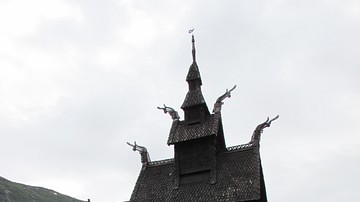
Image
Borgund Stave Church
The Borgund Stave Church, Norway. The church dates from c. 1180.
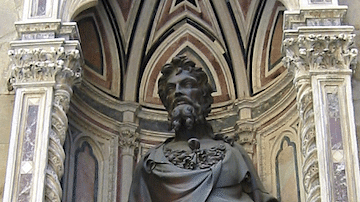
Image
Saint John the Baptist by Ghiberti
A statue of Saint John the Baptist by the Italian Renaissance artist Lorenzo Ghiberti (1378-1455 CE). The figure stands in the exterior wall of the Church of Orsanmichele in Florence. Completed c. 1415 CE.
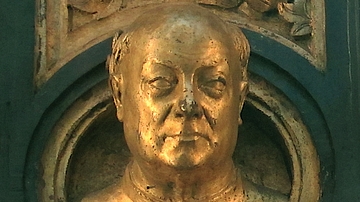
Image
Portrait of Lorenzo Ghiberti
A self-portrait by Lorenzo Ghiberti (1378-1455 CE). Gilded bronze. From the east doors of Florence’s Baptistery of San Giovanni. Made from 1425 CE.
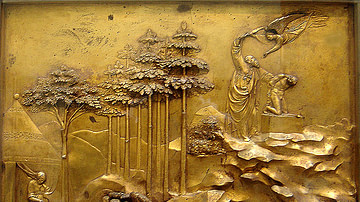
Image
The Angels before Abraham & Sacrifice of Isaac by Ghiberti
A panel from the east doors of Florence’s Baptistery of San Giovanni. Made from 1425 CE by Lorenzo Ghiberti (1378-1455 CE). Gilded bronze. This panel shows the angels appearing before Abraham and the sacrifice of Isaac. The artist Michelangelo...

Image
The Story of Joseph by Ghiberti
A panel from the east doors of Florence’s Baptistery of San Giovanni. Made from 1425 CE by Lorenzo Ghiberti (1378-1455 CE). Gilded bronze. This panel shows the story of Joseph and his brothers. The artist Michelangelo gave the doors the nickname...

Image
Ghiberti's 'Gates of Paradise', Florence
The east doors of Florence’s Baptistery of San Giovanni. Made from 1425 CE by Lorenzo Ghiberti (1378-1455 CE). Gilded bronze scenes from the Bible. The artist Michelangelo gave them the nickname the 'Gates of Paradise' such was the craftsmanship...
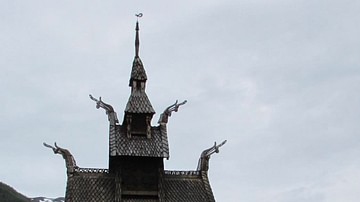
Image
Dragonhead Decorations - Borgund Stave Church
The exterior decorations at Borgund Stave Church, Norway depicting dragon heads, c. 1180.

Image
Pietro Perugino Portrait
A portrait of the Italian Renaissance artist Pietro Perugino (c. 1450-1523 CE). Possibly by Raphael. (Ufizzi, Florence)
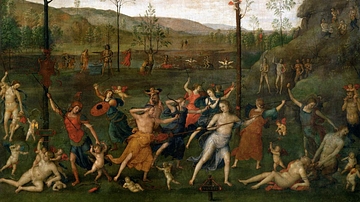
Image
Battle Between Love & Chastity by Perugino
Battle between Love and Chastity, a painting for Isabella d’Este (1474-1539 CE) by the Italian Renaissance artist Pietro Perugino (c. 1450-1523 CE). Created 1503-5 CE. (Louvre, Paris)

Image
Delivery of the Keys to St. Peter by Perugino
The Delivery of the Keys to Saint Peter fresco by the Italian Renaissance artist Pietro Perugino (c. 1450-1523 CE). Sistine Chapel, Rome, c. 1481 CE.